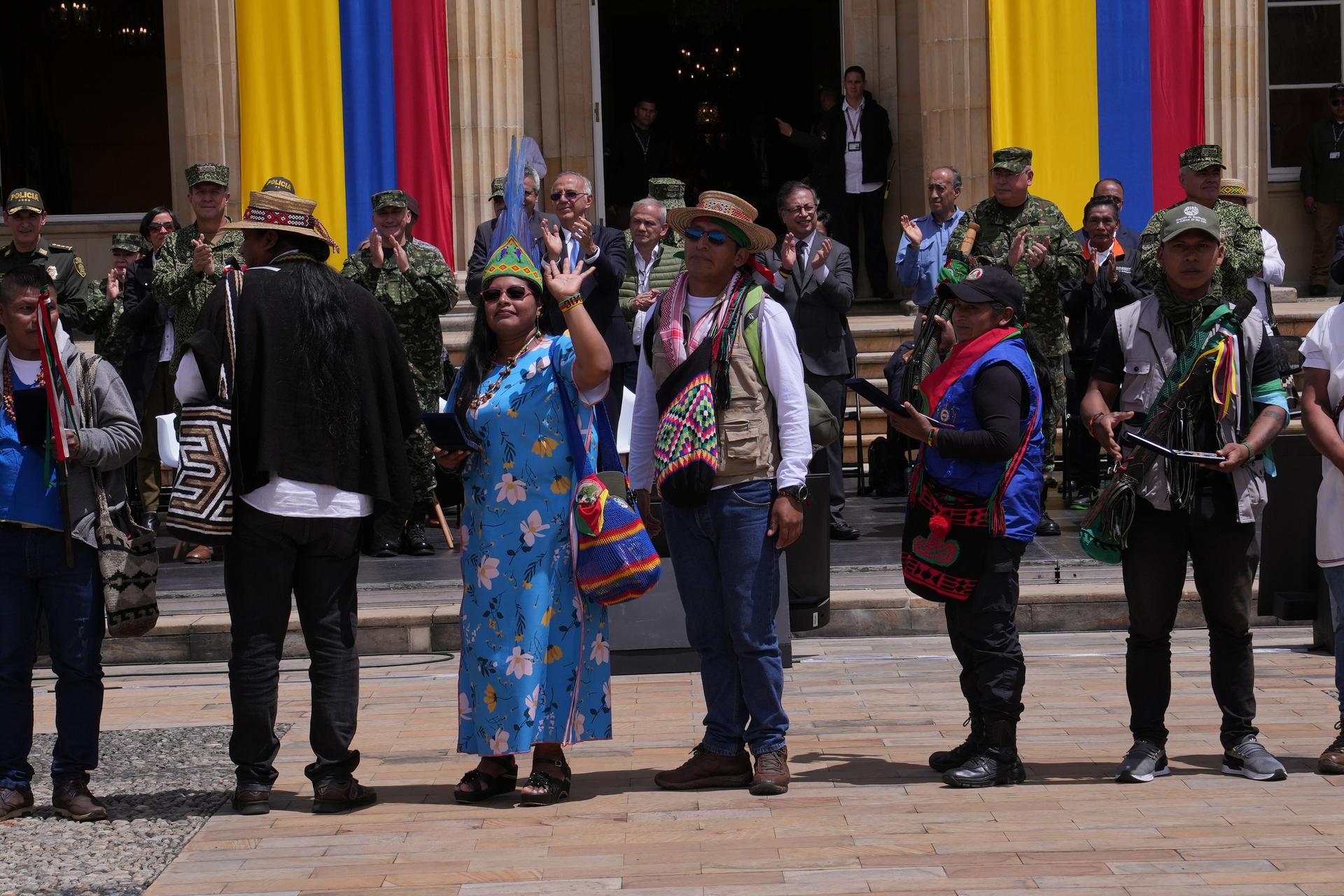Colombian searchers reveal new details on the rescue of four children who survived plane crash in the Amazon
Henry Guerrero spent 35 days in a remote patch of the Amazon rainforest looking for four children who survived after a plane crash. The children were found alive on June 9 after surviving on their own for 40 days.
Guerrero was one of the Indigenous leaders who received a medal for participating in the search at a military ceremony headed by Colombia’s president this week.
“This should show the world that Indigenous knowledge is important,” Guerrero said during the ceremony held outside of the presidential palace. “During the search, we proved that as Indigenous people, we have a lot to contribute.”
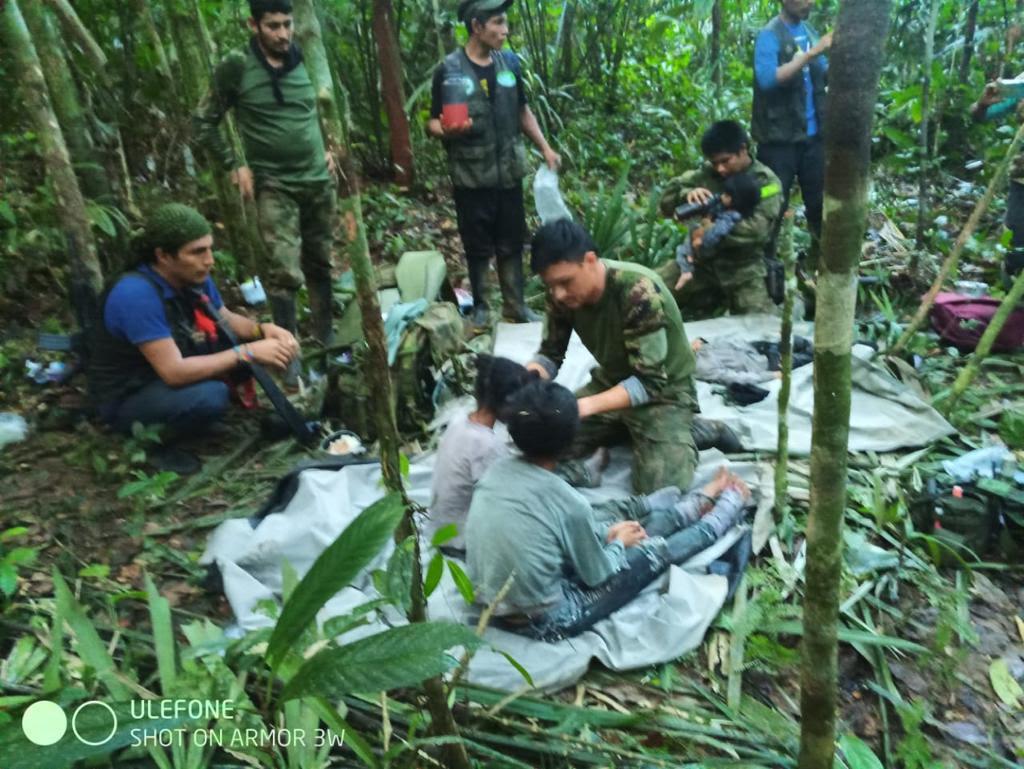
The children, a group of siblings ages 1 to 13, come from the Huitoto tribe. They’re still recovering in a hospital where they have been shielded from the press.
But as the days pass, more details are emerging about how they were rescued in an area far from any villages in one of the world’s most hostile environments.
On Monday, Colombian President Gustavo Petro described the rescue of the four children as an example of how Western technologies and Indigenous knowledge of the rainforest can be “combined” to “save life on the planet.”
“This mission has to be the beginning of an understanding between us,” he said.
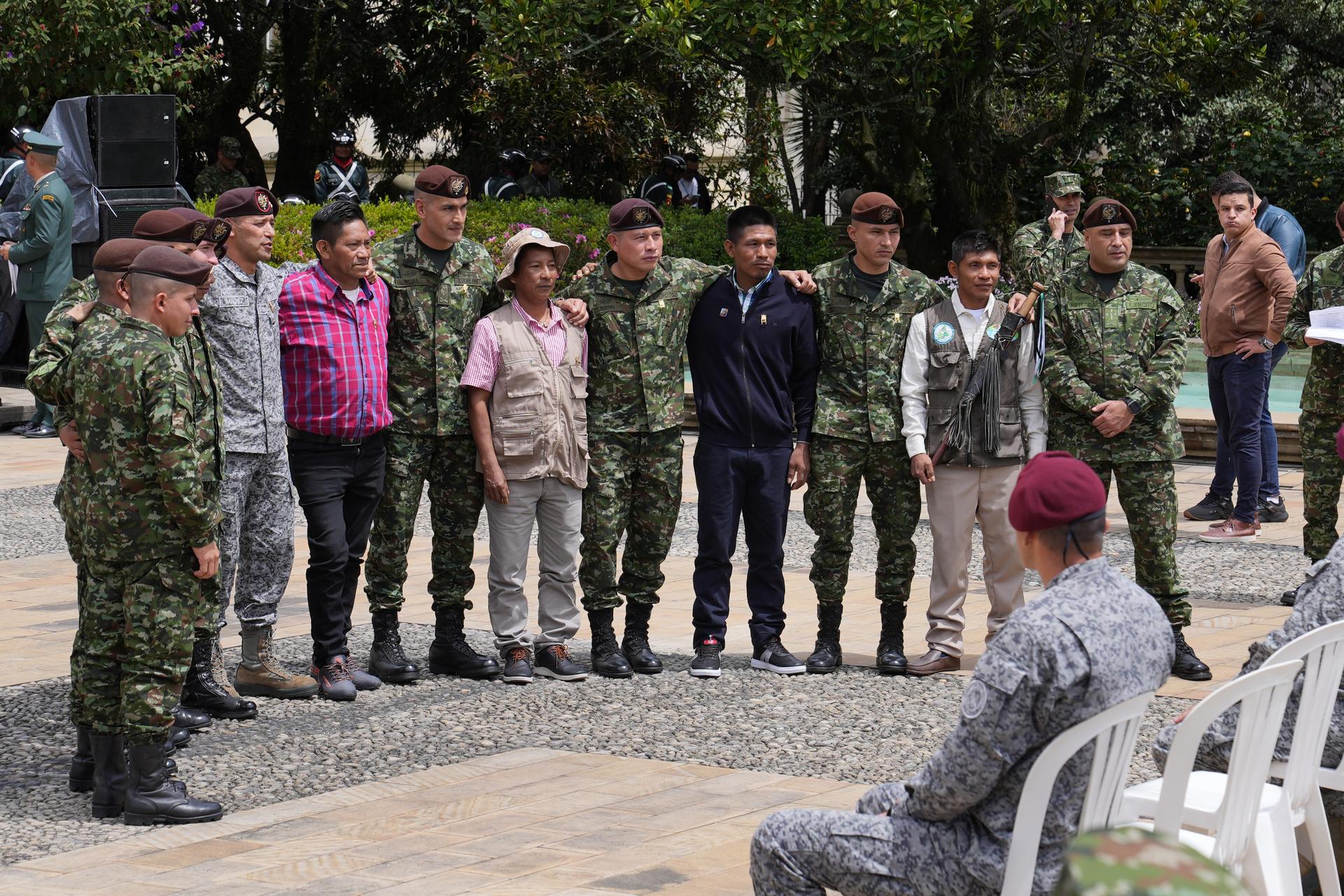
Colombia’s military deployed more than 150 troops to the area around the crash site to search for the children who were traveling on a small plane with three adults who perished in the accident.
The troops were joined by five sniffer dogs and more than 70 Indigenous volunteers like Guerrero, who comes from the same reservation as the children.
Guerrero said that the Indigenous searchers were about to give up on June 8 after they had been in the rainforest for a month.
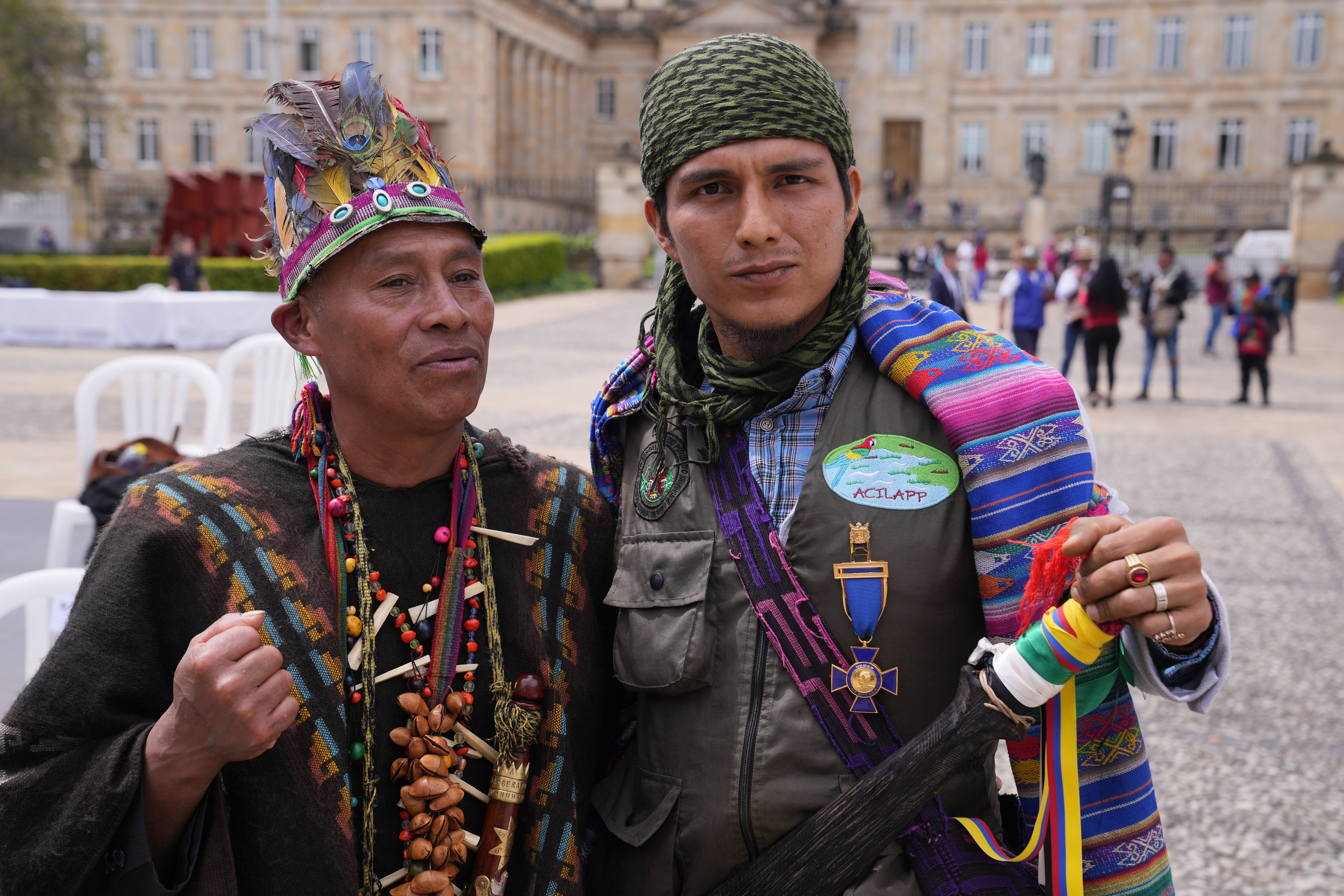
That’s when one of the members of the group decided to take ayahuasca, a hallucinogenic beverage that causes visions. It is used by Indigenous people in the Amazon basin for healing purposes, and also to find answers to difficult questions.
“With our own eyes, we were unable to find the children,” Guerrero said. “So, we turned to ayahuasca to guide us. It was our last resort.”
The following day, a team of eight volunteers slashed through the jungle following the directions of elder Jose Angel Rubio, who took the ayahuasca brew.
Dairo Kumariteke, a volunteer from the Murui Muina tribe, was in that group. He said that by midday, they had found the children.
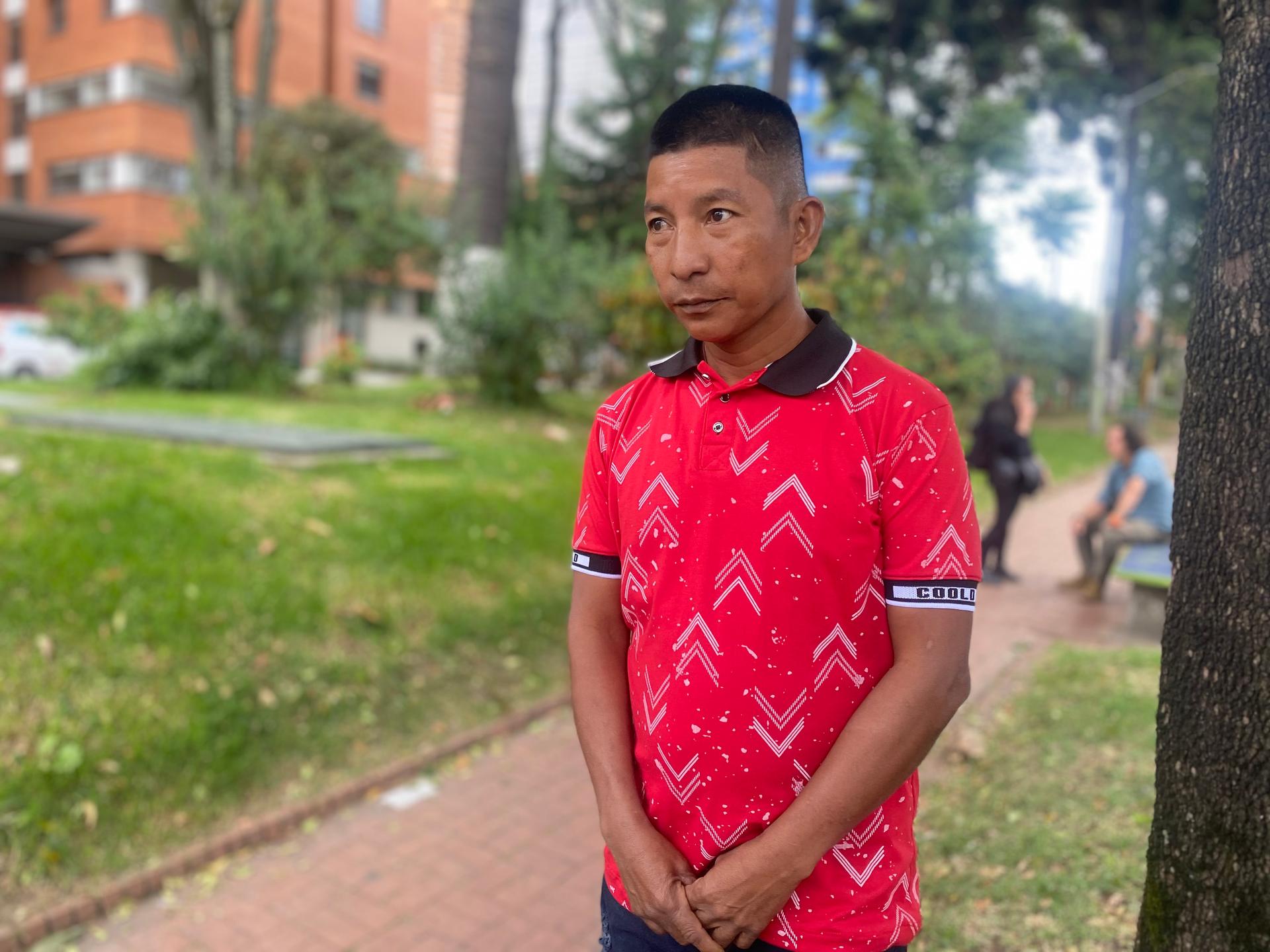
“We were walking through the bush, and I heard what seemed to be the cries of a baby,” he said. “I stopped, and waited. And then, I heard the cries again.”
Kumariteke said the children had built a small shelter using branches, leaves and a mosquito net that they had taken from the plane.
They had survived because they came across one of the food packages of cookies and cassava flour that the Colombian army dropped into the area from helicopters.
But they also survived because Lesly Mucutuy, the oldest child, knew how to navigate the rainforest.
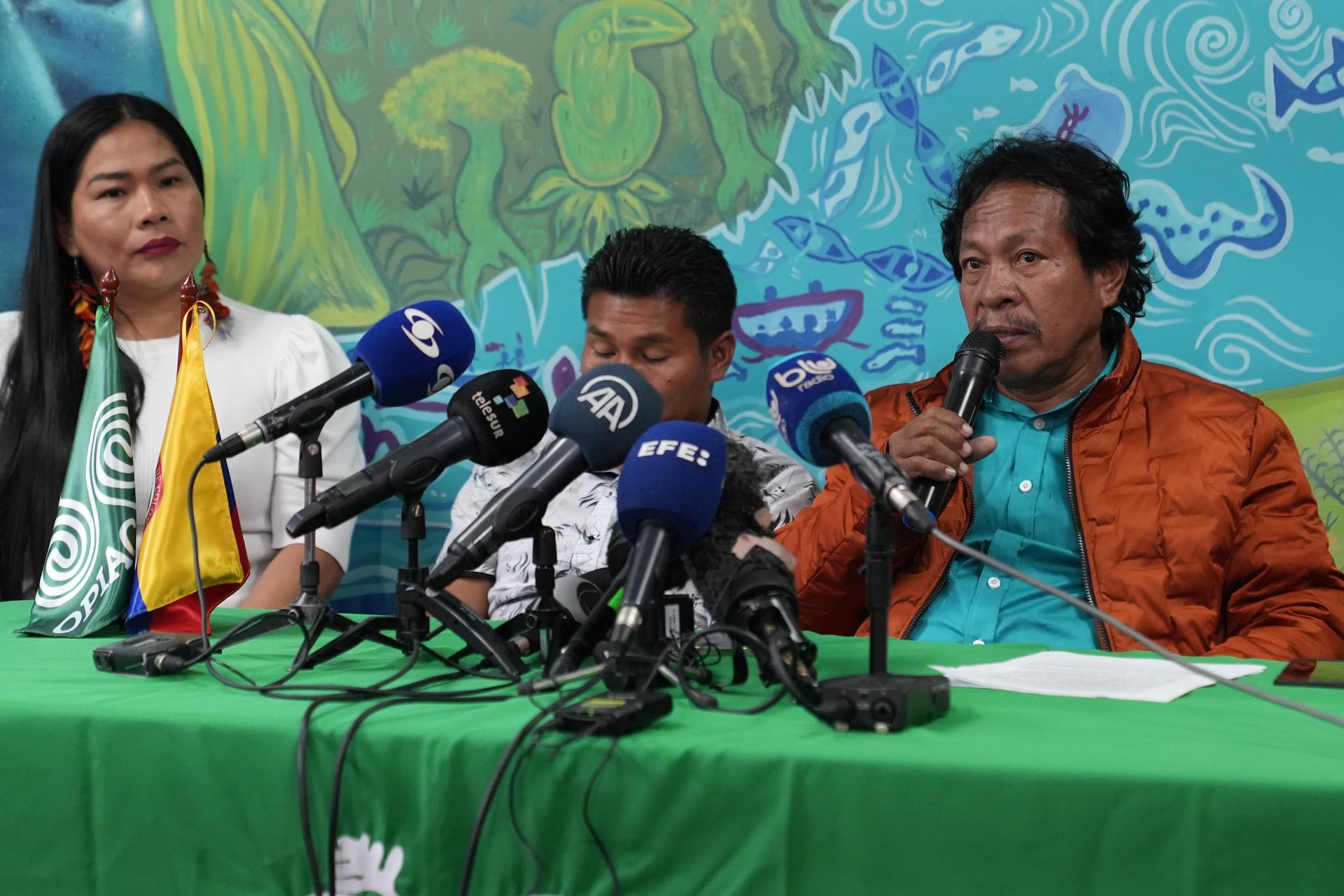
She fed her siblings with a fruit that falls from palm trees called mil pesos that is rich in carotene and vitamin E. She also collected water in a plastic bottle that she had taken from the plane.
Still, the children were weak and malnourished by the time they were found in a small forest clearing, said Eliecer Munoz, another member of the search party.
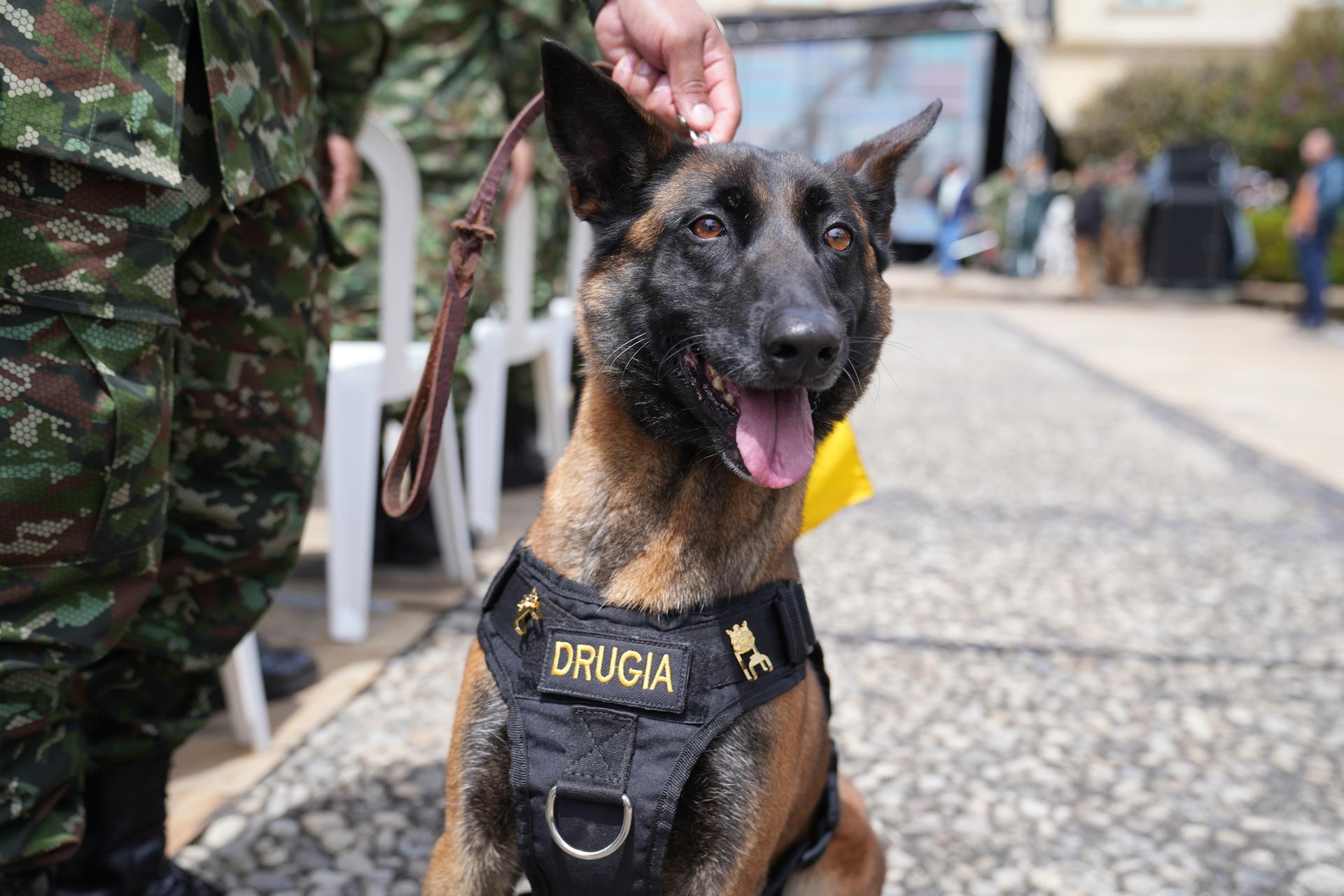
“We had to carry them on our backs for two hours as we made our way back to a meeting point in the forest,” he said. “Then, we handed them over to the military.”
The rescue effort has been widely celebrated in Colombia where Indigenous people and the military are often at odds.
But Colombians are also grieving for Wilson, one of the sniffer dogs who played a key role in the childrens’ rescue, but got lost in the jungle during the search.
The Belgian Malinois ran away from his handler on May 18 as he followed a scent.
But soldiers say his paw prints helped them get closer to the area where the children were found by the Indigenous volunteers.
After the children were flown out of the jungle in a helicopter, dozens of troops remained in the area to search for Wilson.
The military took two female dogs in heat to the area, hoping that their scent would draw Wilson toward the search party. Soldiers also left his handler’s clothes around the crash site in an effort to lure the canine back to safety.
But on Monday, Gen. Pedro Sanchez, the commander in charge of the rescue operation, said that at this point, the chances of finding Wilson in the rainforest are improbable.
“He is a dog, and he is a hazard” to predators in the rainforest, like Jaguars, Sanchez explained.
To honor Wilson, the military brought the dog’s mother Drugia to Monday’s ceremony.
She was saluted by Petro and awarded with a medal.
“We are going to remember Wilson forever, as we do every soldier and policeman who has offered their lives to protect Colombia,” Sanchez said.
Our coverage reaches millions each week, but only a small fraction of listeners contribute to sustain our program. We still need 224 more people to donate $100 or $10/monthly to unlock our $67,000 match. Will you help us get there today?
